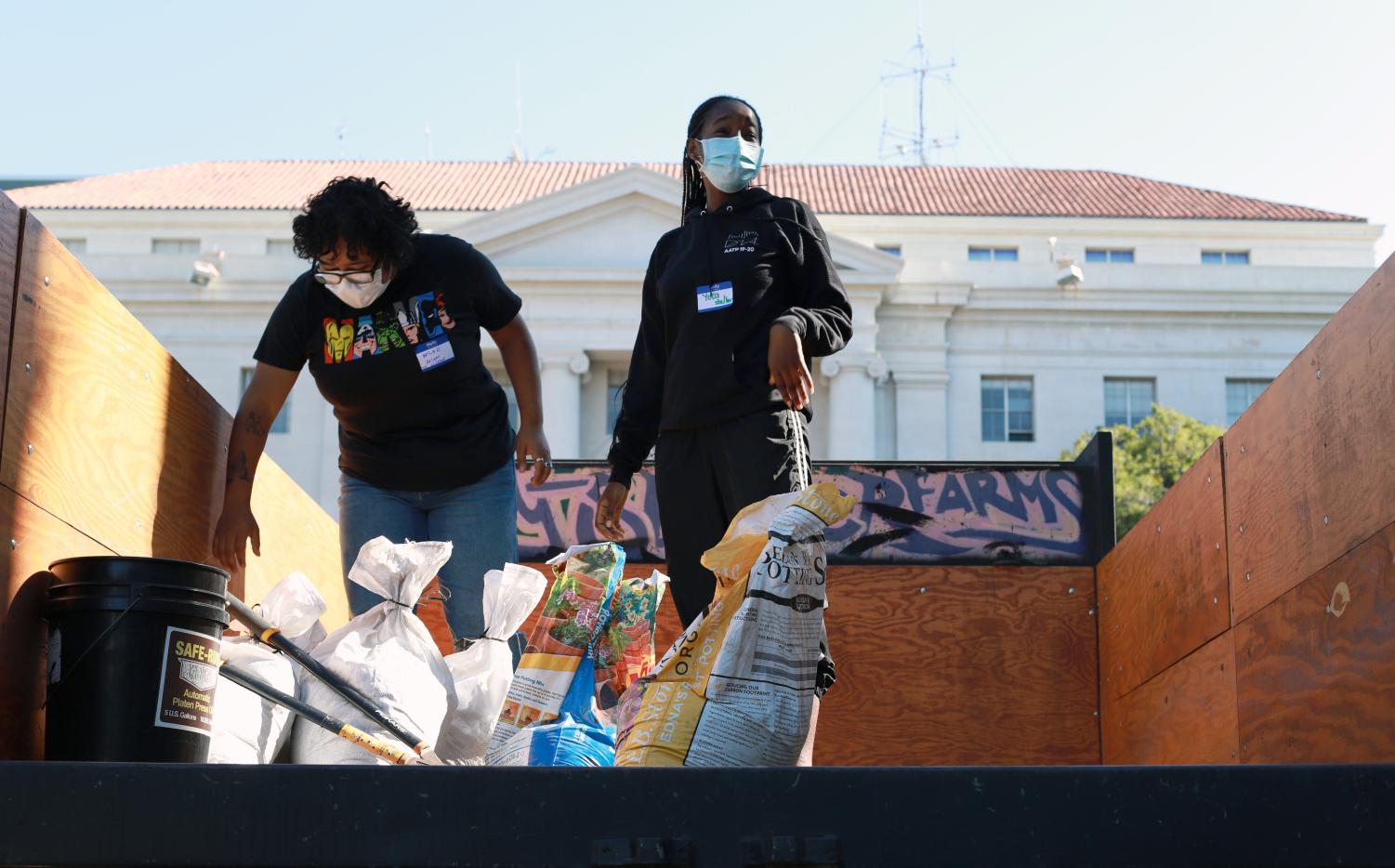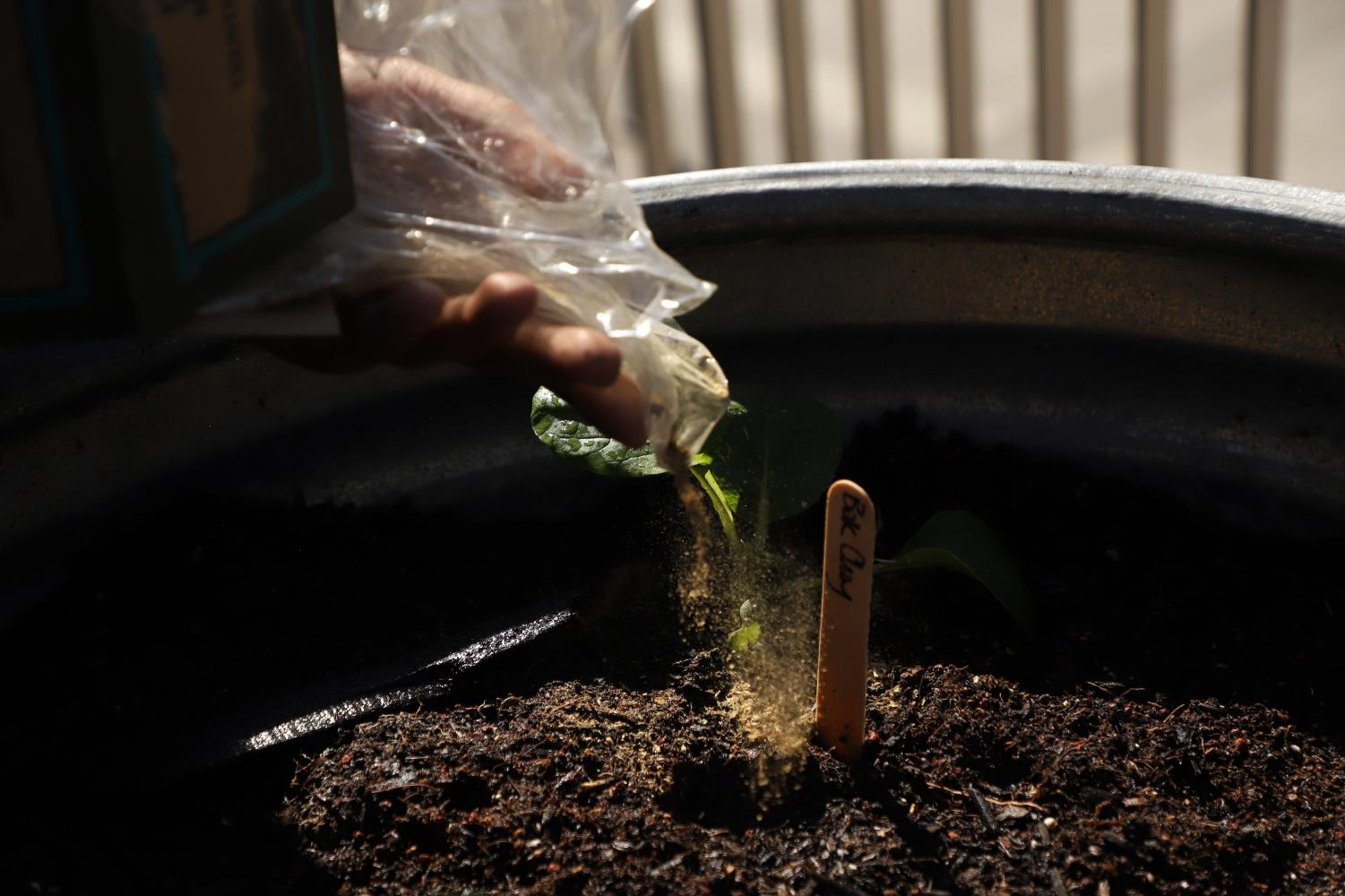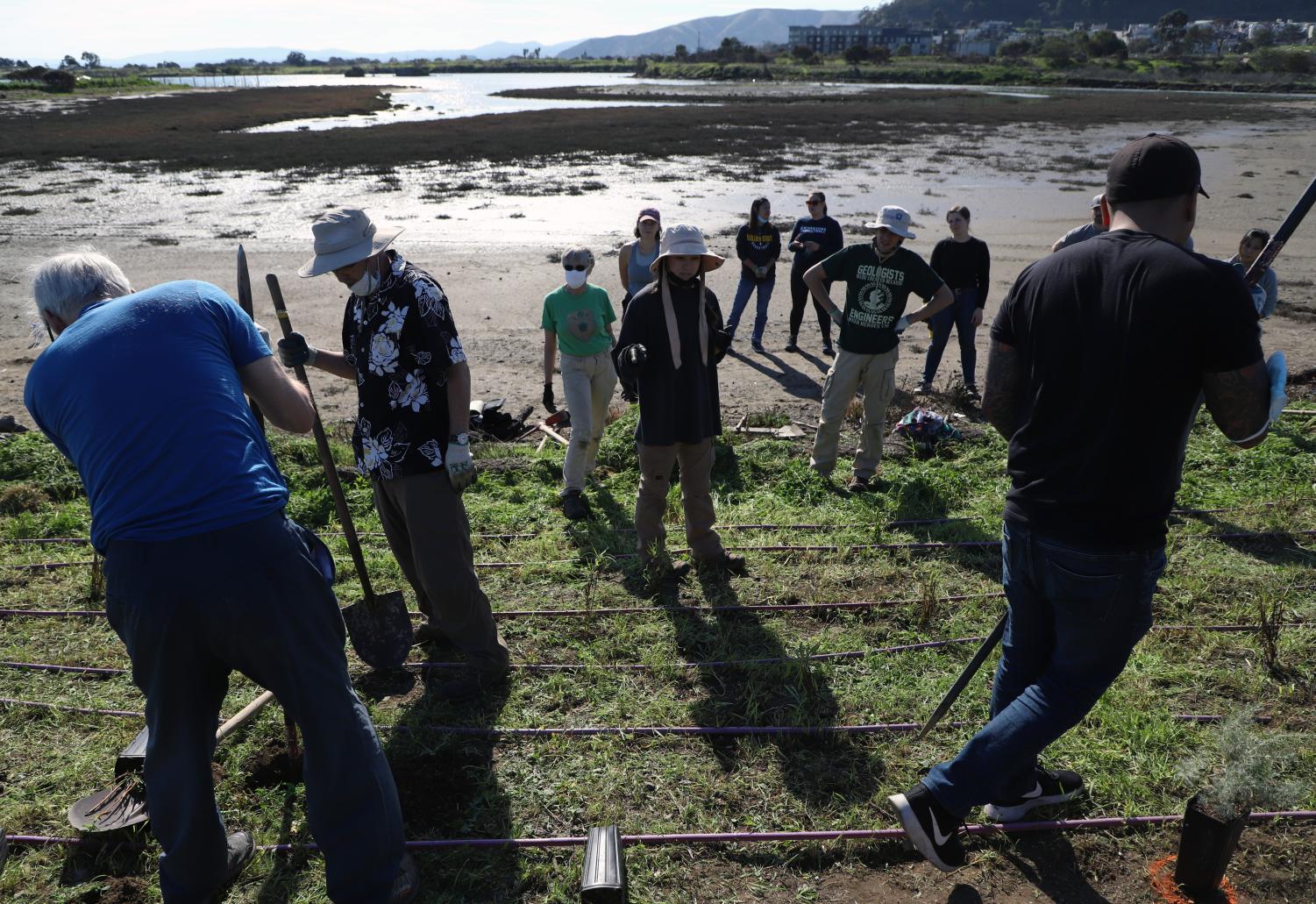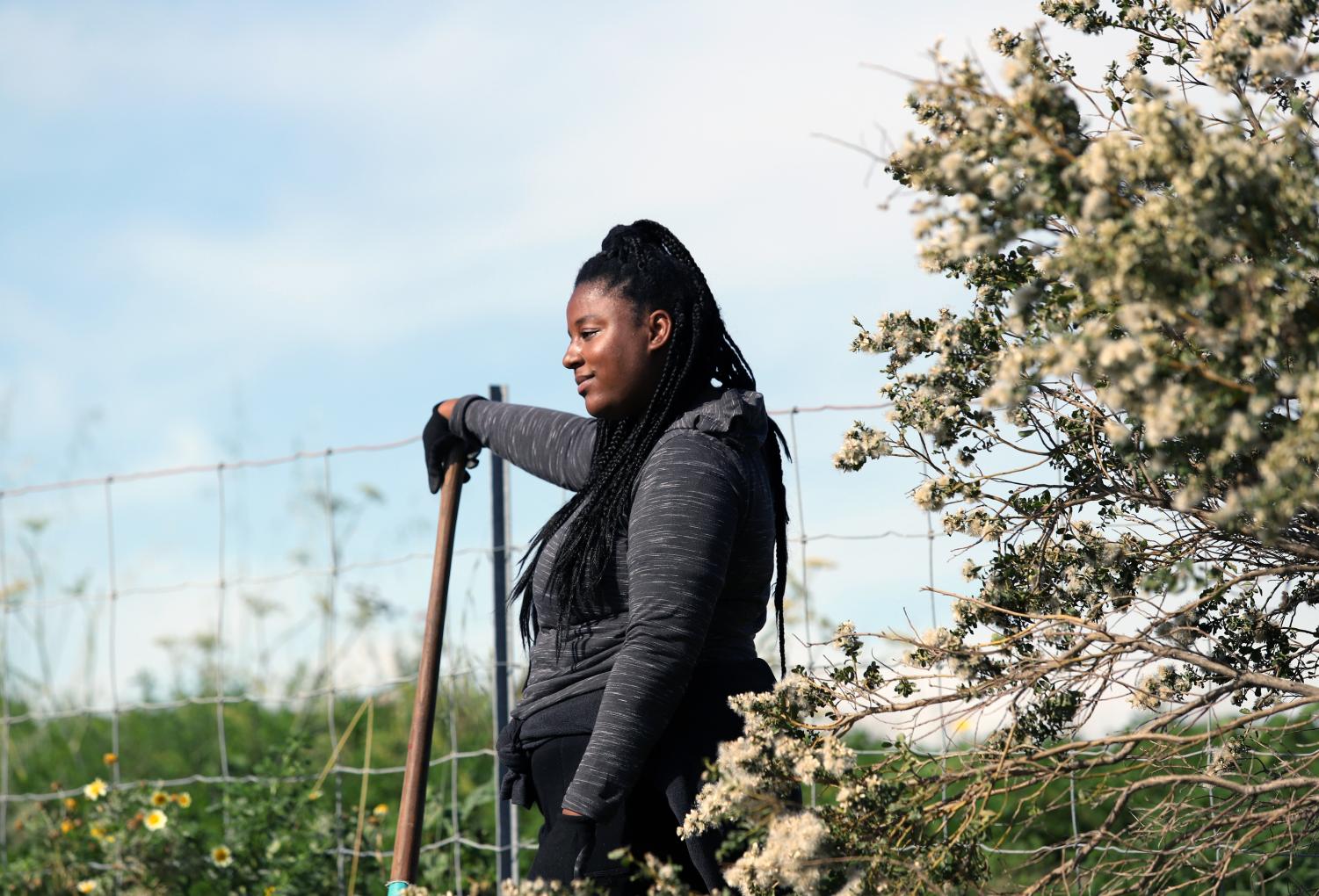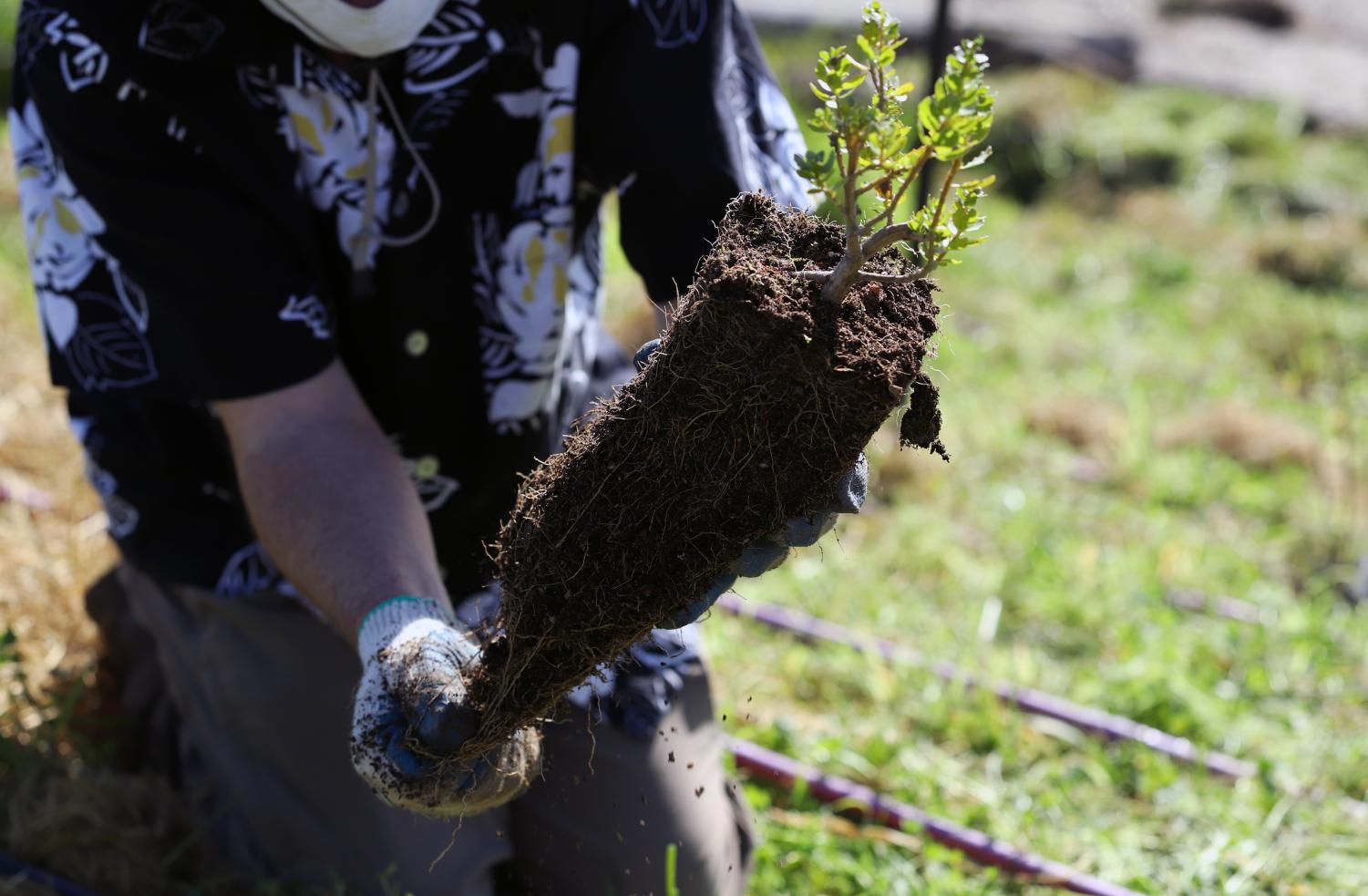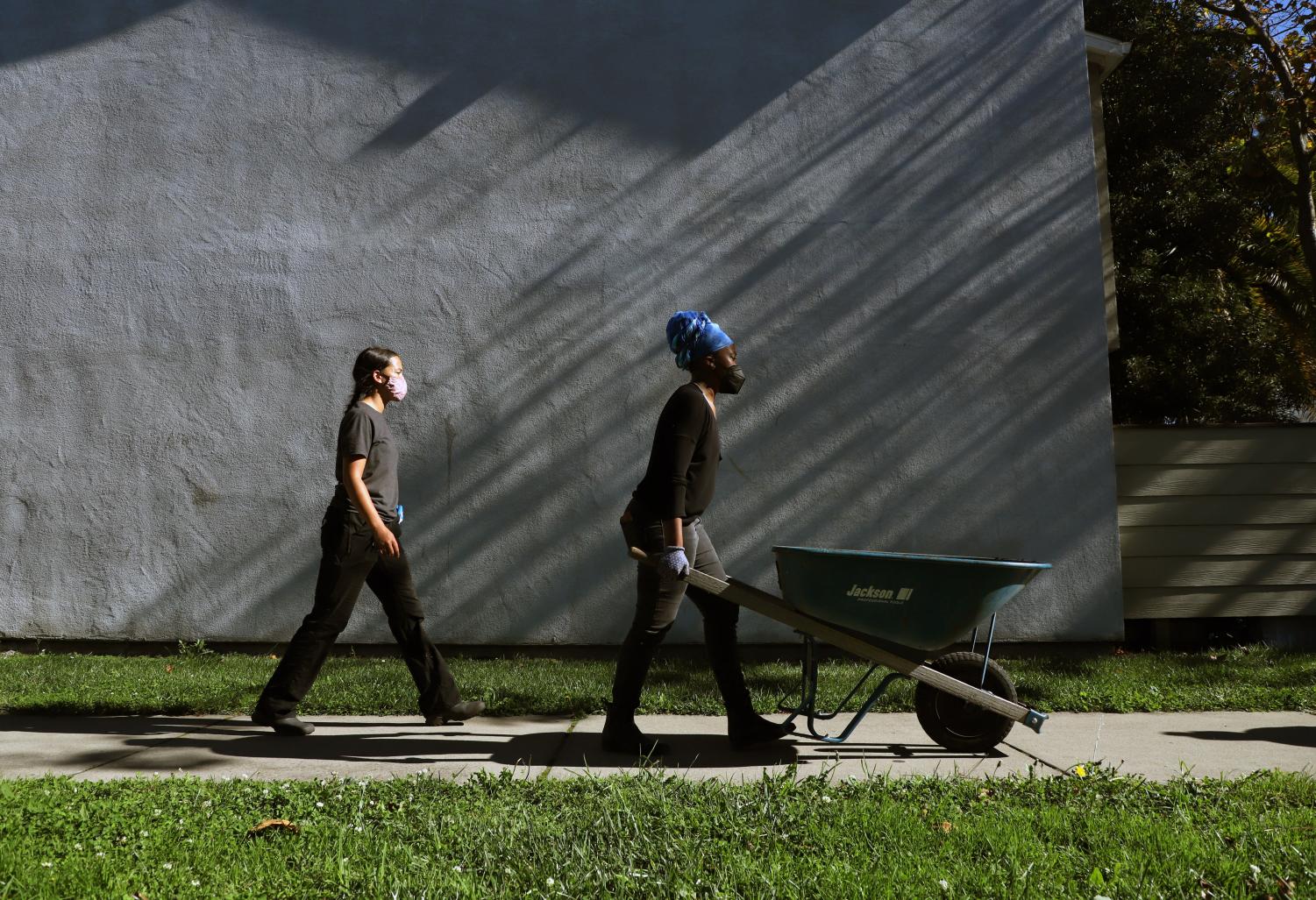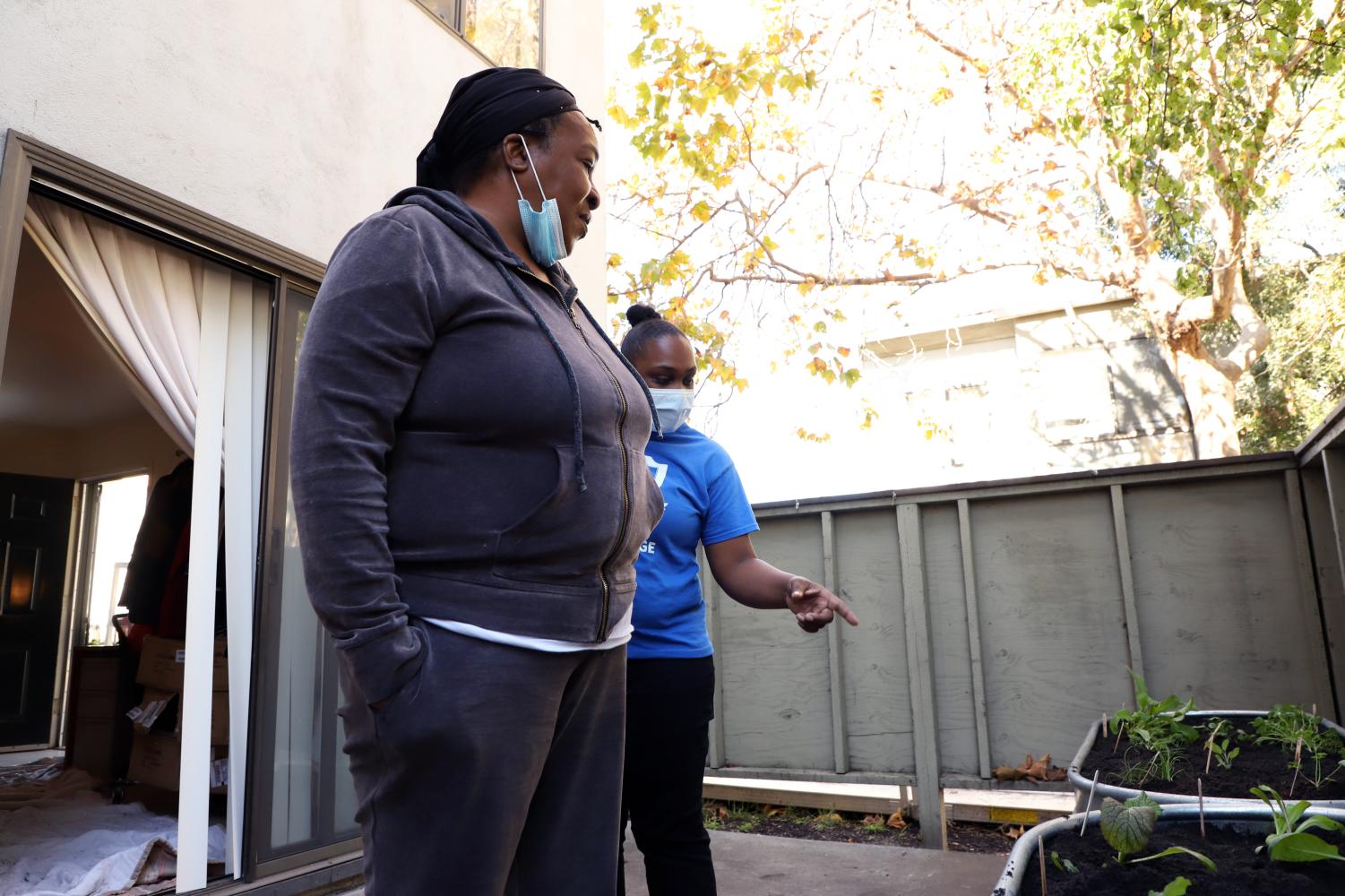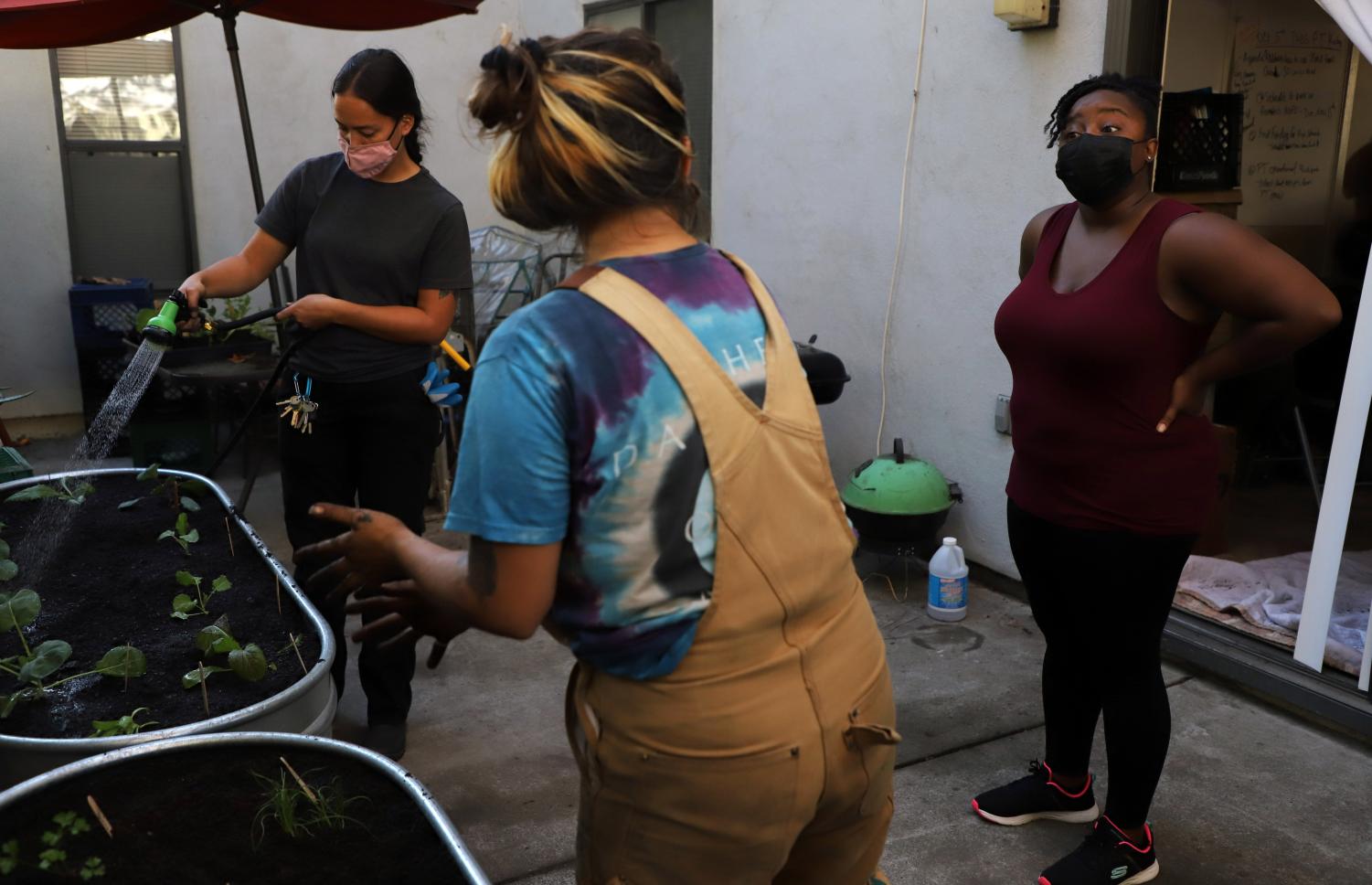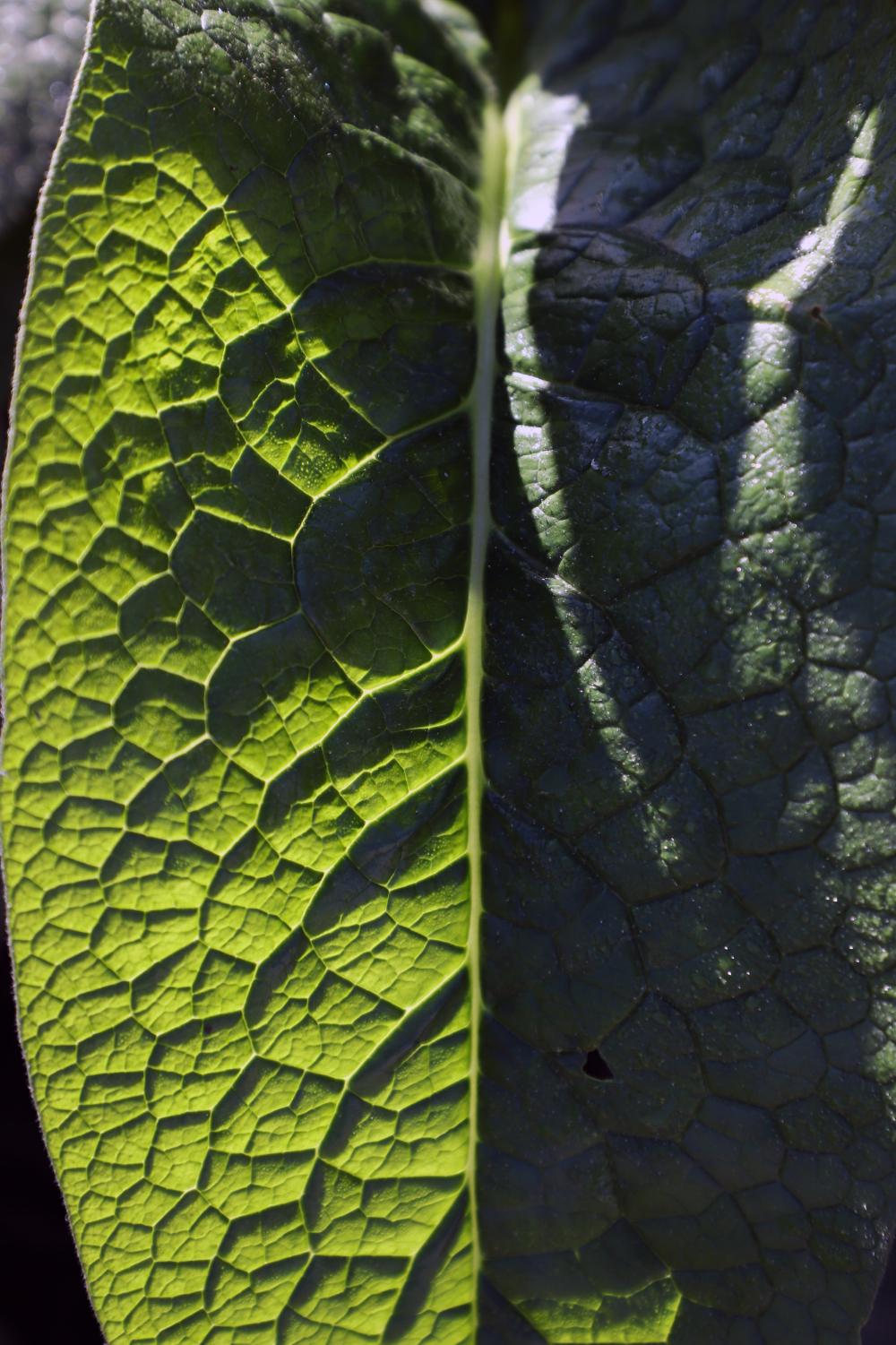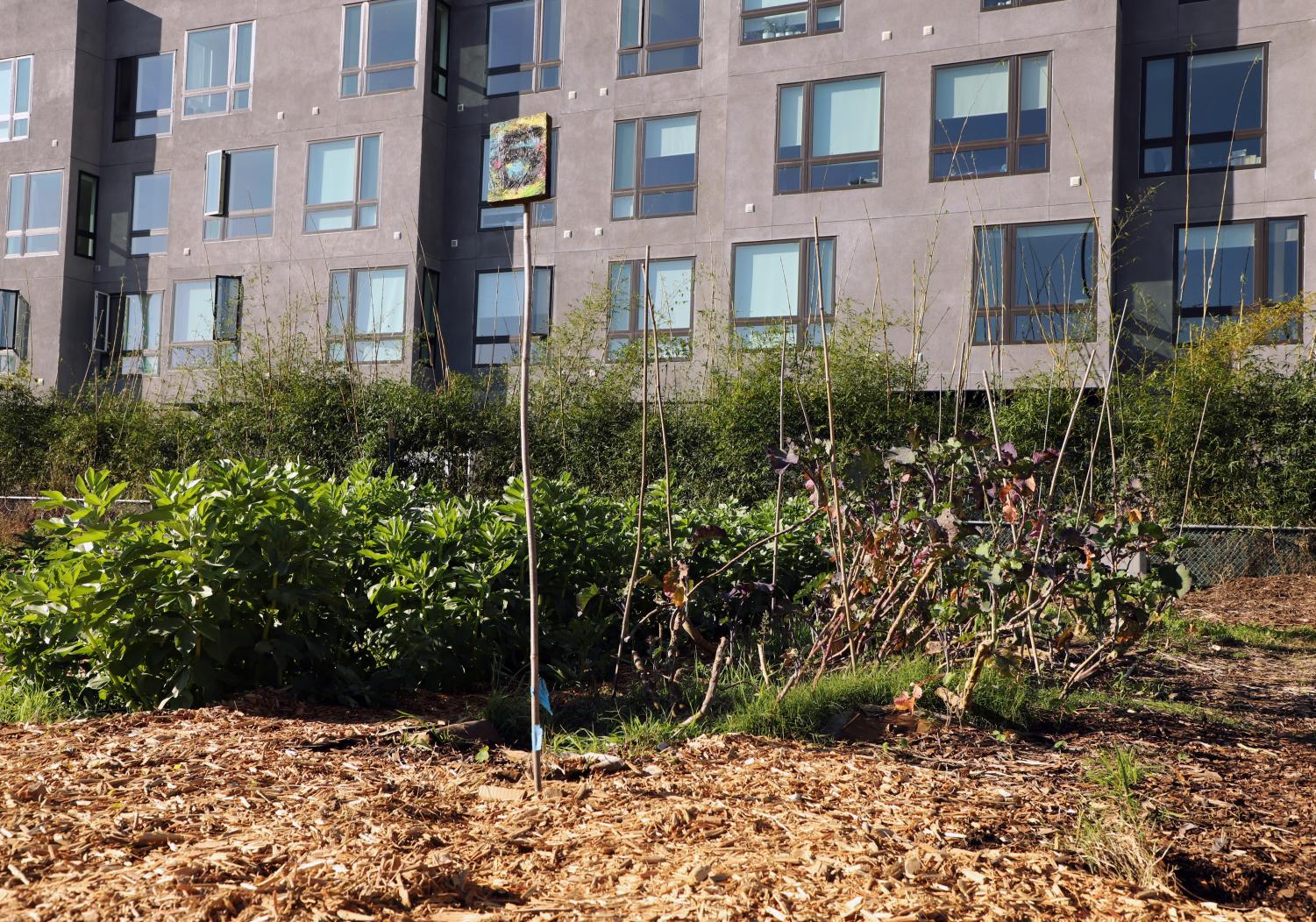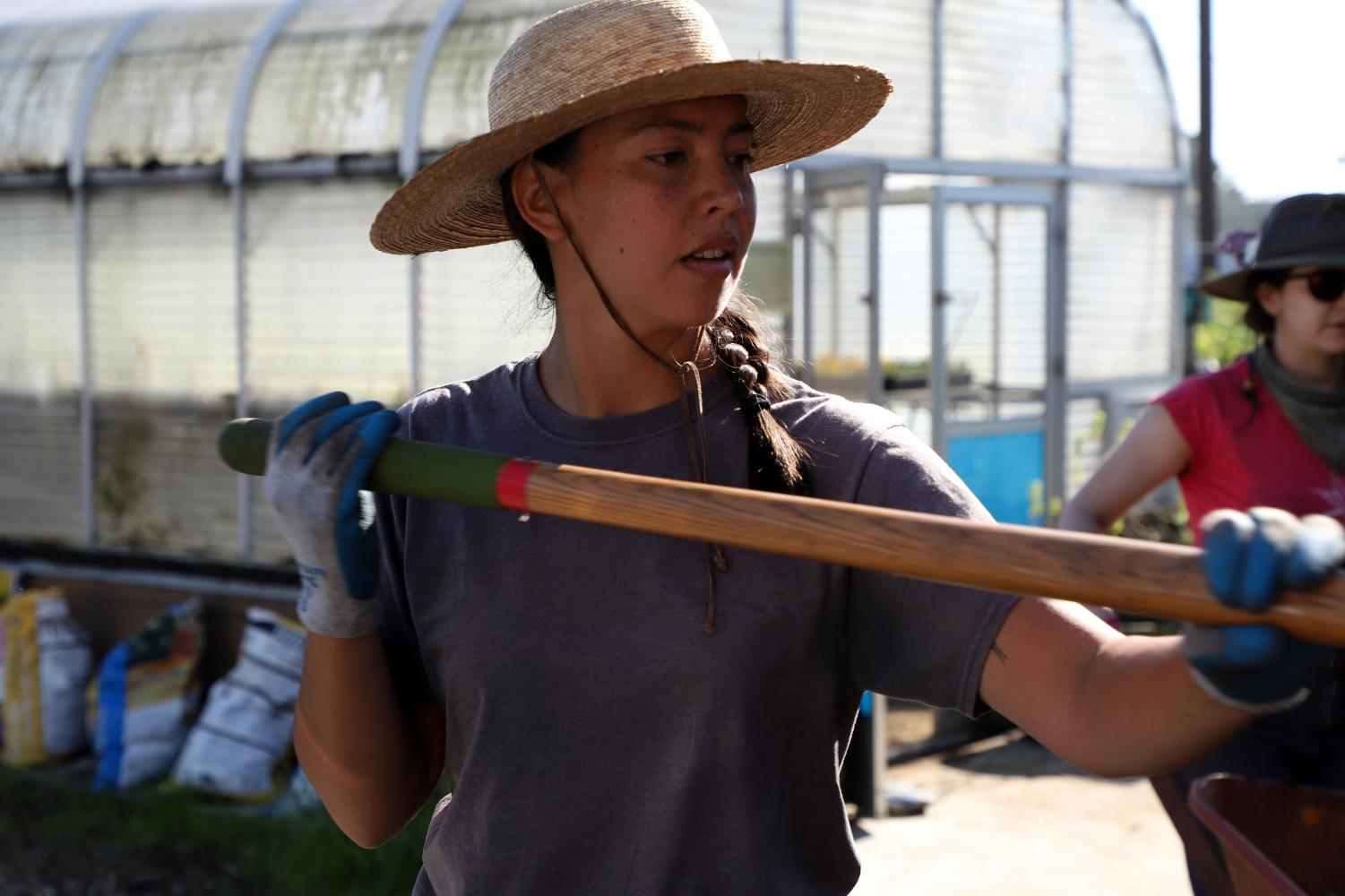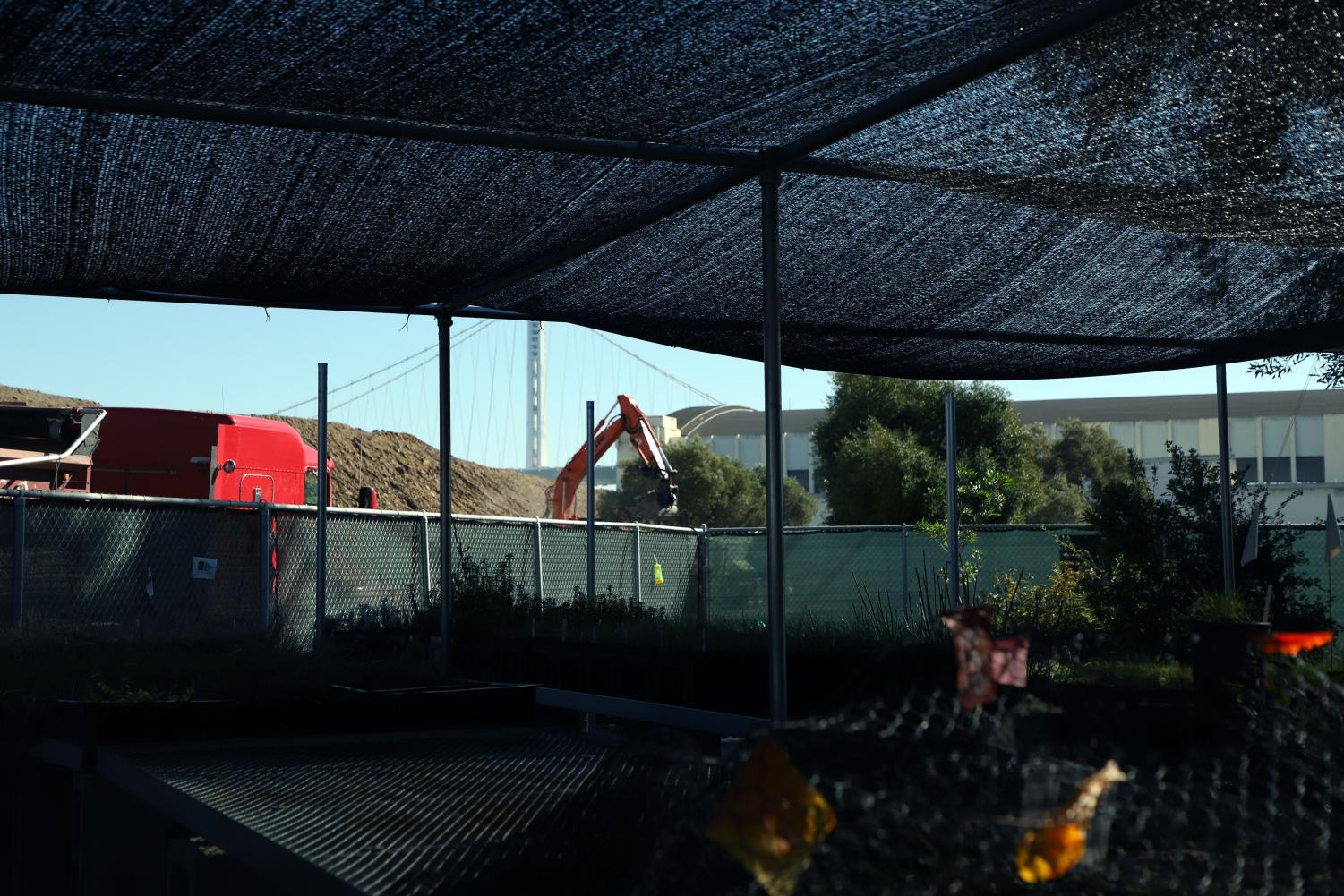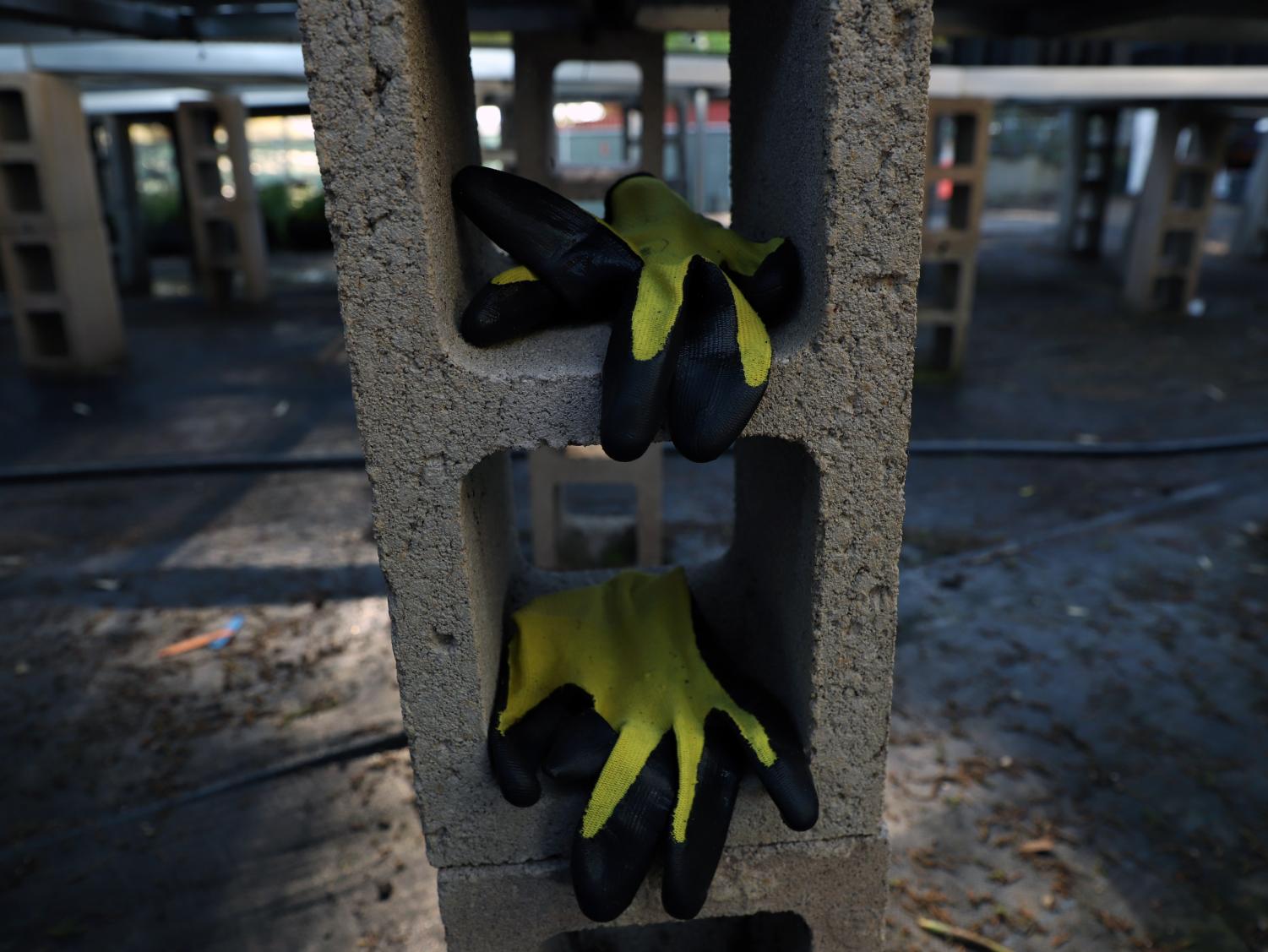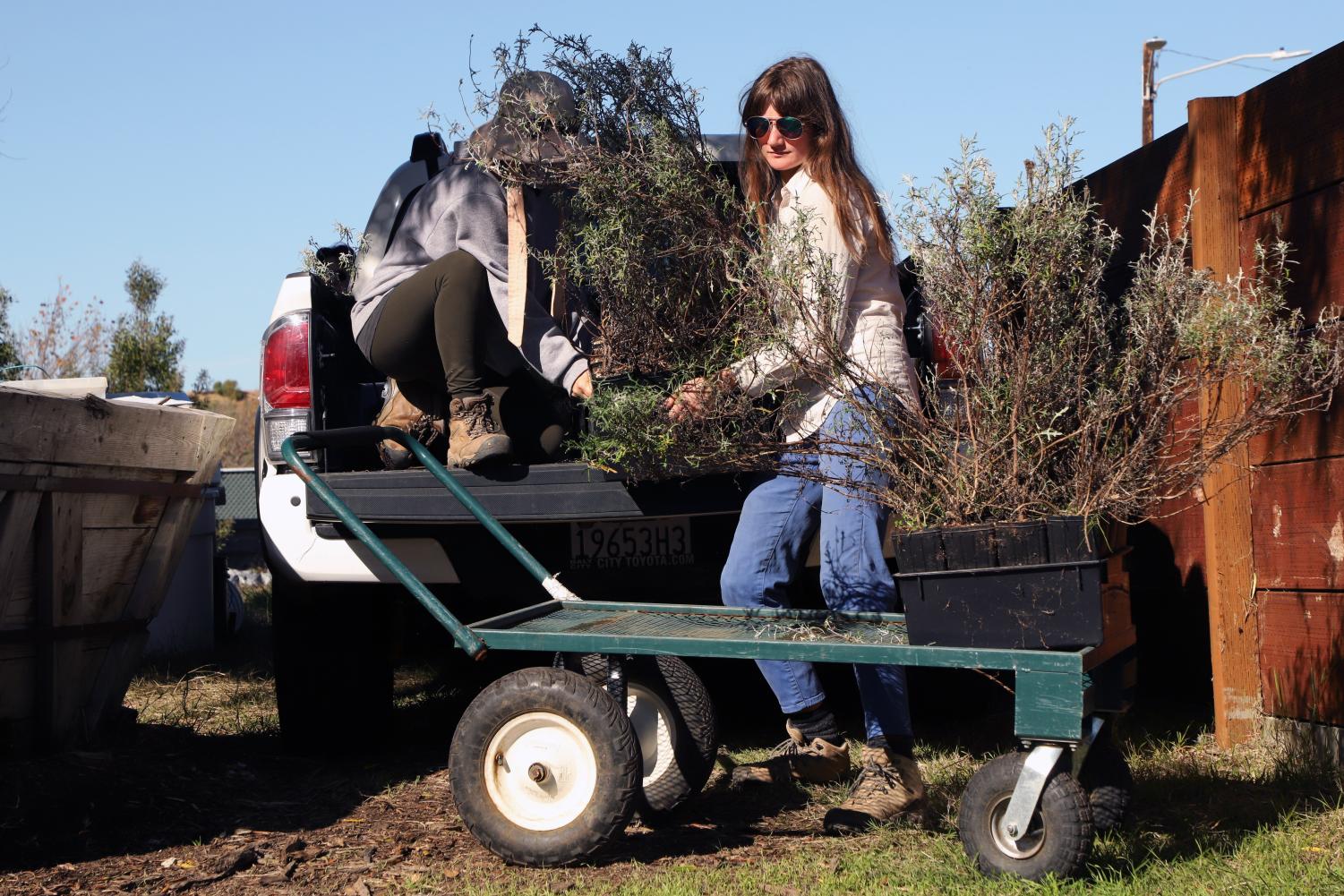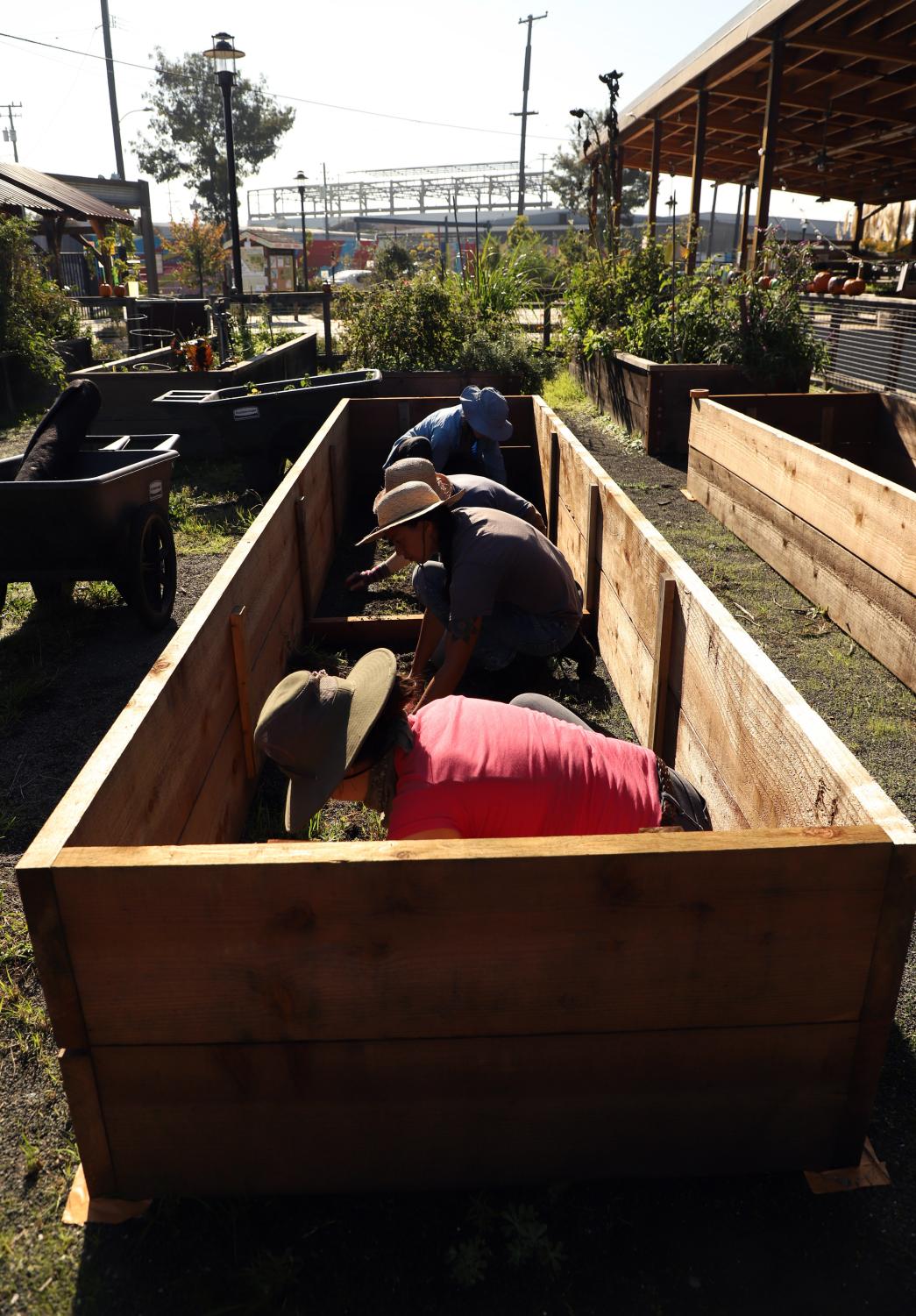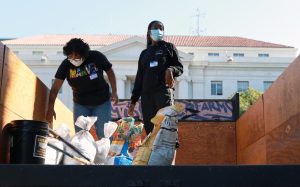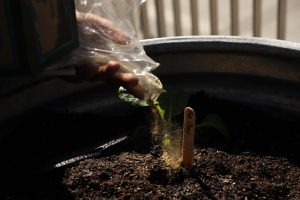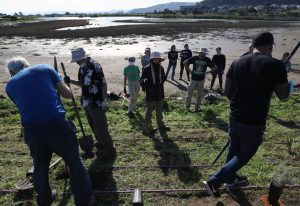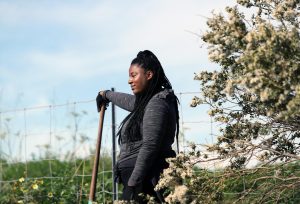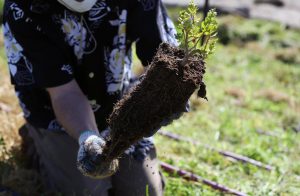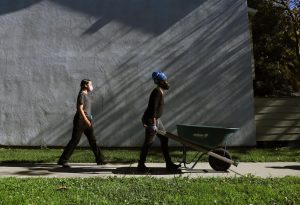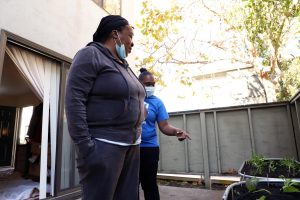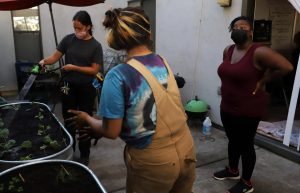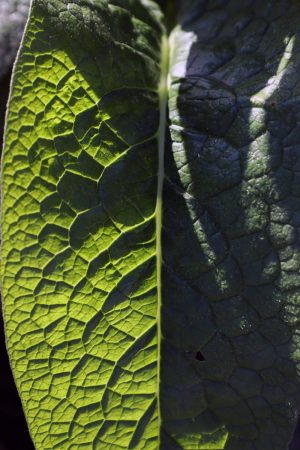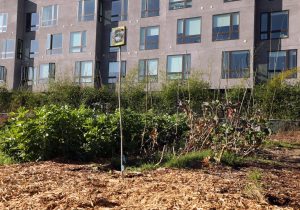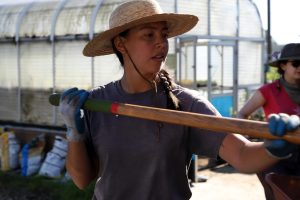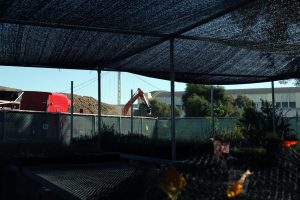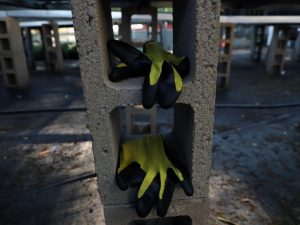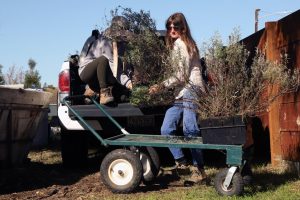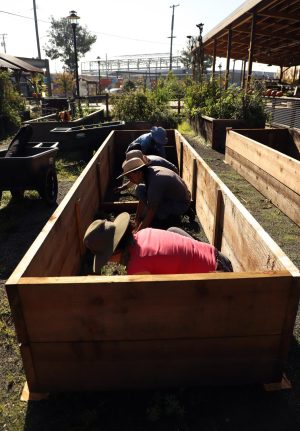-
Nilo and Yota stand in the bed of the City Slicker Farm truck, getting ready to pass off supplies to their peers at the Multicultural Community Center on the University of California, Berkeley campus on Oct. 26, 2021. Yota, a 20-year-old student at UC Berkeley, is an intern with the MCC on campus. “Honestly, I just like to play with dirt. I like sand. I like just being in community with other people who actually know how to do stuff like this. I think I’m just happy to be in a space where it’s so community-centered. And it’s also just recognizing that we’re all part of this larger ecosystem,” Yota said. (Amaya Edwards / Xpress Magazine)
-
Hernan Soto pours nutrients onto freshly plotted plants in the Multicultural Community Center garden beds at the University of California, Berkeley campus on Oct. 16, 2021. City Slicker Farms facilitates mentor visits and MCC is one of those garden sites. This day was about holding a space of healing for the interns and volunteers, who are all people of color and many come from immigrant households. Soto, who does work for his community in Bay Point, highlighted the fact that there are more liquor stores than grocery stores in Bay Point. “It’s intentional. Alcohol and drugs have historically been used to destabilize our communities. So if we’re reconnecting to the land and we are growing our own food, reconnecting with Earth, it’s a way to just ground ourselves in wellness,” Soto said. (Amaya Edwards / Xpress Magazine)
-
Nina Omomo leads a volunteer day at Candlestick Park on Nov. 17, 2021. Omomo is the restoration specialist for the nonprofit, Literacy for Environmental Justice. (Amaya Edwards / Xpress Magazine)
-
Tori Coleman volunteers with LEJ, planting native plants in Yosemite Slough on Nov. 17, 2021. (Amaya Edwards / Xpress Magazine)
-
A LEJ volunteer loosens a root-bound native plant before putting it in the soil at Yosemite Slough on Nov. 17, 2021. (Amaya Edwards / Xpress Magazine)
-
Claire Meuschke, Garden and Education Manager, and Danielle Smith, Communications Coordinator, transfer soil from their CSF truck into Theresa Coleman’s home in West Oakland on Oct. 27, 2021. They worked for hours, refreshing Coleman’s garden by replacing the old wooden planters with galvanized trough planters. (Amaya Edwards / Xpress Magazine)
-
Theresa Coleman and a friend look at her freshly planted backyard garden in West Oakland, Calif., on Oct. 27, 2021. Coleman is a pillar in her community, working hard to make sure that people around her have access to necessary resources like clothing, food and books. Coleman’s family surprised her back in 2014 when she was going through surgery and had CSF install a backyard garden for her, which consisted of wooden planters supporting food plants. Planting food in her backyard is about promoting community and “making the groceries come to” them. Coleman compared gardening to therapy “a conversation with the Earth.” (Amaya Edwards / Xpress Magazine)
-
Claire Meuschke waters Theresa Coleman’s new planters as Vera Lopez, Volunteer Program Coordinator, speaks to Coleman’s niece, Porsha in West Oakland, Calif., on Oct. 27, 2021. (Amaya Edwards / Xpress Magazine)
-
A kale plant on the City Slicker farm in West Oakland, Calif., on Nov. 12, 2021. “I think community is integral to City Slicker Farms and the work we do … There is a lot of diversity in all senses of the word: socioeconomic, racial, geographical, different ages, different abilities. So people will connect to some food sources in ways that others don’t. I think a lot of the work we do is taking into account (the fact) that a lot of different types of people are working with us, and we’re also serving them, so (it’s important to) be adaptable and open and constantly redefine what the needs are for the community,” Meuschke said. (Amaya Edwards / Xpress Magazine)
-
Condos sit behind the farm beds at City Slicker Farms in West Oakland, Calif.. CSF, founded in 2001, is led by Willow Summer and other community volunteers. It addresses food security and urban farming as part of the movement for food justice. In the last two decades, CSF has built more than 600 community and backyard garden beds around the city. Since the beginning, CSF has only continued to grow, creating a network of community solidarity and drive to make sure people are not only fed but knowledgeable about the environment around them and how to sustain urban farms and gardens. (Amaya Edwards / Xpress Magazine)
-
Claire Meuschke, Garden and Education Manager, shovels dirt out from the back of the CSF truck. “I think the work in nature, farm work, gardening is endless. There’s always something to be doing and replacing and shuffling out because, with growing food, we’re constantly interacting with the lifecycle of plants. As the garden manager, I’m doing all types of labor all the time like sourcing materials, driving the dump truck around and picking up soil…But then I’m also kind of the contractor, also working with the budget and talking to funders, wearing a lot of hats … but it’s energizing…It’s never really dull here. But at the same time, I’m learning the difficulties of balancing and preserving energy, especially when working in sensitive areas of hunger,” Meuschke said. (Amaya Edwards / Xpress Magazine)
-
A nursery run by Literacy for Environmental Justice sits in front of a construction site on Treasure Island with the Bay Bridge in the background on Nov. 11, 2021. LEJ team members spend the day here prepping thousands upon thousands of native plants to be planted around the island. (Amaya Edwards / Xpress Magazine)
-
Gardening gloves sit inside a cinder block at the LEJ Treasure Island native plant nursery on Treasure Island with the Bay Bridge in the background on Nov. 11, 2021. (Amaya Edwards / Xpress Magazine)
-
Nina Omomo and another LEJ team member unload new native plants to be taken care of in the nursery on Treasure Island with the Bay Bridge in the background on Nov. 11, 2021. (Amaya Edwards / Xpress Magazine)
-
Claire Meuschke and three Urban Adamah fellows work on a project at the CSF West Oakland Farm Park on Nov. 12, 2021. They worked for most of the morning to afternoon to fill the new community garden beds with soil for fresh planting. The Urban Adamah fellows are part of the mentor program that Meuschke leads, teaching about farming and food sustainability. (Amaya Edwards / Xpress Magazine)
Luxury condos loom over the farm beds at City Slicker Farms (CSF), a nonprofit organization sitting on a 1.5-acre plot of occupied Ohlone Chochenyo land in Oakland, California. The organization was born out of necessity. West Oakland is historically a food desert and continues to be one, affecting the majority Black and low-income families living there.
CSF focuses on providing food to the surrounding community and beyond. Claire Meushke, Garden and Education Manager for CSF, leads some of the most important and vital programs that CSF offers, such as Garden Mentor Visits and the Backyard Garden Program (BGP). The BGP prioritizes “BIPOC community members who face economic barriers to growing their own food and connecting with green spaces,” Meuschke said.
“We try to center low-income and people of color here, feeding them but also making the space accessible and making sure they’re welcome,” said Meuschke. “A lot of unhoused folks like to come use the space…It’s a sanctuary for some. Then, we also have a lot of people who probably are the gentrifiers and they come into the space. So it’s kind of a complicated sanctuary,”
Across the Bay, a similar picture is painted in the Bayview-Hunters Point neighborhood of San Francisco.
Literacy for Environmental Justice (LEJ) is a diverse cohort of community members, community activists, environmental mentors and restoration specialists. Nina Omomo is the restoration coordinator there, overseeing the restoration and revitalization of different habitats around the city.
The LEJ nursery sits at the edge of the Bayview and is home to garden beds and testing stations that sustain the native plants the stewards cultivate there. Omomo and other LEJ employees, a small but mighty crew, are working to expand this nursery that is also home to a community garden.
Both of these organizations are rooted in community and history. They have chosen their positions because they want to do this work, not because they have to.
“I think it makes people feel good,” Omomo said. “I feel like if this is really what you want to do, you have to dedicate more than you probably would doing something else. And sometimes it takes a lot out of you…I’ve worked other jobs where I get paid more and, at the end of the day, that doesn’t really do it for me sometimes.”
The endeavor of educating a marginalized community on environmental justice, whether this comes in the form of native seed planting or providing fresh food, is necessary. In turn, these efforts and dedication provide and sustain sanctuary, a complicated one, but sanctuary nonetheless.

